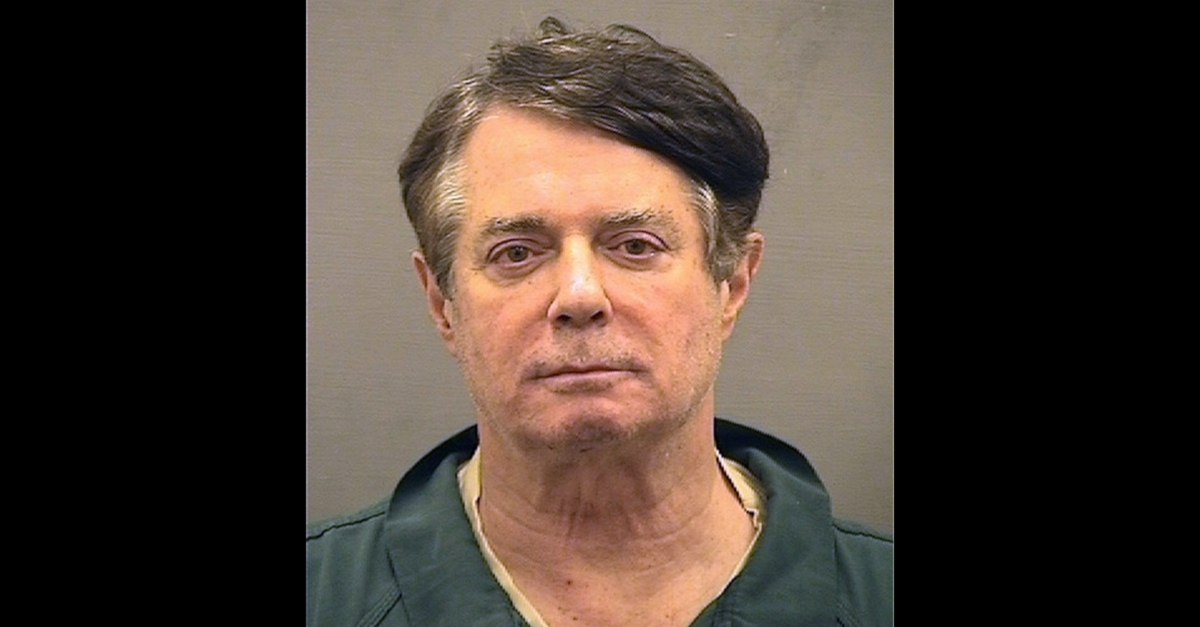
An appellate court in New York on Thursday ruled that convicted felon Paul Manafort cannot be prosecuted by the state for the same conduct that already landed him in federal prison, citing to the state’s double jeopardy law barring an individual from being charged twice for substantially the same crime. The ruling affirmed a lower court’s order dismissing state mortgage fraud charges brought against Manafort last year by the Manhattan District Attorney Cy Vance. Given that the specter of state charges is out of the picture, the door is open for President Donald Trump to pardon his former campaign manager, should he desire to do so.
The four-judge panel on New York’s Supreme Court Appellate Division for the First Judicial Department unanimously agreed with Supreme Court Justice Maxwell Wiley’s December 2019 ruling, reasoning that New York’s statutory due process protections prohibited the state from trying Manafort on fraud charges stemming from conduct that already led to him being indicted in federal court.
The dismissal was widely viewed as an implicit rebuke of Manhattan District Attorney Vance, who had plainly charged Manafort in an effort to ensure that President Trump would not be able to pardon the disgraced Republican lobbyist; a president’s pardon power applies to federal, not state, crimes.
Vance’s office attempted to skirt the double jeopardy law by claiming the circumstances of Manafort’s federal prosecution created fell within an exception to CPL 40.20 (2) (b). That statute states that a person cannot be separately prosecuted for two offenses based upon the same conduct unless “Each of the offenses as defined contains an element which is not an element of the other, and the statutory provisions defining such offenses are designed to prevent very different kinds of harm or evil.” But Wiley said the state failed to establish that the “harm or evil” the federal and state statutes were designed to prevent was “very different.”
Prosecutors also claimed that because the federal jury was unable to reach a verdict on several of the federal fraud charges against Manafort that were eventually dismissed “without prejudice,” he had not technically been “prosecuted” as defined under New York law.
But Wiley rejected the argument, noting that Manafort admitted to the underlying conduct which contributed to lengthening the prison sentence agreed to as part of his plea deal. The appeals court agreed.
The appeals court agreed with Wiley’s initial reasoning and decision.
“We affirm based on Supreme Court’s well-reasoned analysis. It is undisputed that the federal charges of which defendant has already been convicted involve the same fraud, against the same victims, as is charged in his New York indictment,” the court wrote in a brief 2-page order. “Here, as the court correctly found, the exception set forth in CPL 40.20 (2) (b) is inapplicable. The People failed to establish that the federal and state statutes, all of which were directed against fraudulent transactions, were designed to prevent very different kinds of harm or evil. The statutory differences cited by the People fall far short of satisfying the ‘very different kinds’ test.”
Read the full order below:
People v Paul Manafort (2020-1097) by Law&Crime on Scribd
[image via Alexandria Detention Center]
Have a tip we should know? [email protected]